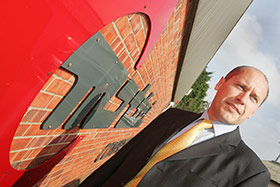Compressed air: why we need an official accreditation scheme
In UK manufacturing, compressed air is as widely used as gas and electricity – and yet there are no legal training or accreditation courses to protect the people using it. While the risks of gas and electricity are widely understood, anecdotal evidence suggests that the same cannot be said for compressed air.
What needs to be done?
We would like to see the introduction of a recognised training programme and an official accreditation scheme for service engineers working on compressed air systems, and for those involved in system design and installation.
We would even go so far as to suggest that we need something similar to the Gas Safe Register that’s in place for installers working with gas appliances. This way, only people with proven competence could install and maintain compressed air systems.
So what are the risks?
- If a compressed air system isn’t properly maintained, it could end up posing a danger. In extreme cases, a poorly maintained compressor might even catch fire or explode.
- We still hear of employees using compressed air to dust off machinery, work benches and their clothes – even though if it penetrates the skin and entered the bloodstream a fatal air bubble can reach the heart or lungs. If it hits an eye or ear it can lead to blindness or loss of hearing.
- Noise levels from a compressor should be checked so the operator’s hearing isn’t harmed. All compressor manufacturers have to state the noise levels of their machines in accordance to international standards, with the current one being EN ISO 2151:2008.
What training or accreditation currently exists?
Every compressed air system should have a Written Scheme of Examination in place, which the system should be regularly inspected in accordance with.
These are a legal requirement under the Pressure Systems Safety Regulations 2000. The document contains a wide range of information, including:
- The parts of the system that need to be examined
- The nature of the examination required
- The preparatory work needed
- The maximum interval allowed between examinations
The worry is that, even though it’s been in place for 13 years, many businesses either ignore it or are simply not aware of it. There is a potential fine of up to £20,000 for not having a Written Scheme of Examination.
The British Compressed Air Society (BCAS) does offer four voluntary training courses:
- Safe Working with Compressed Air
- A Certificate in Compressed Air System Technology
- The Diploma in Compressed Air Management
- A Competent Examiner course for those involved in carrying out examinations in accordance with Written Schemes of Examination.
What should you look for in a supplier?
As well as looking out for voluntary schemes, make sure you check that your compressed air supplier is a member of BCAS. Membership is by peer review and members have to adhere to its codes of conduct, and can choose to proactively participate in the BCAS AirSAFE register, which promotes the credibility and professionalism of BCAS members as identified via customer feedback.
Mattei is a member of BCAS, has SAFEcontractor accreditation and takes part in the AirSAFE register scheme.
Mattei services and maintenance> Contact us for more information>
Back to news
